2021.04.23
TORIENA Interview
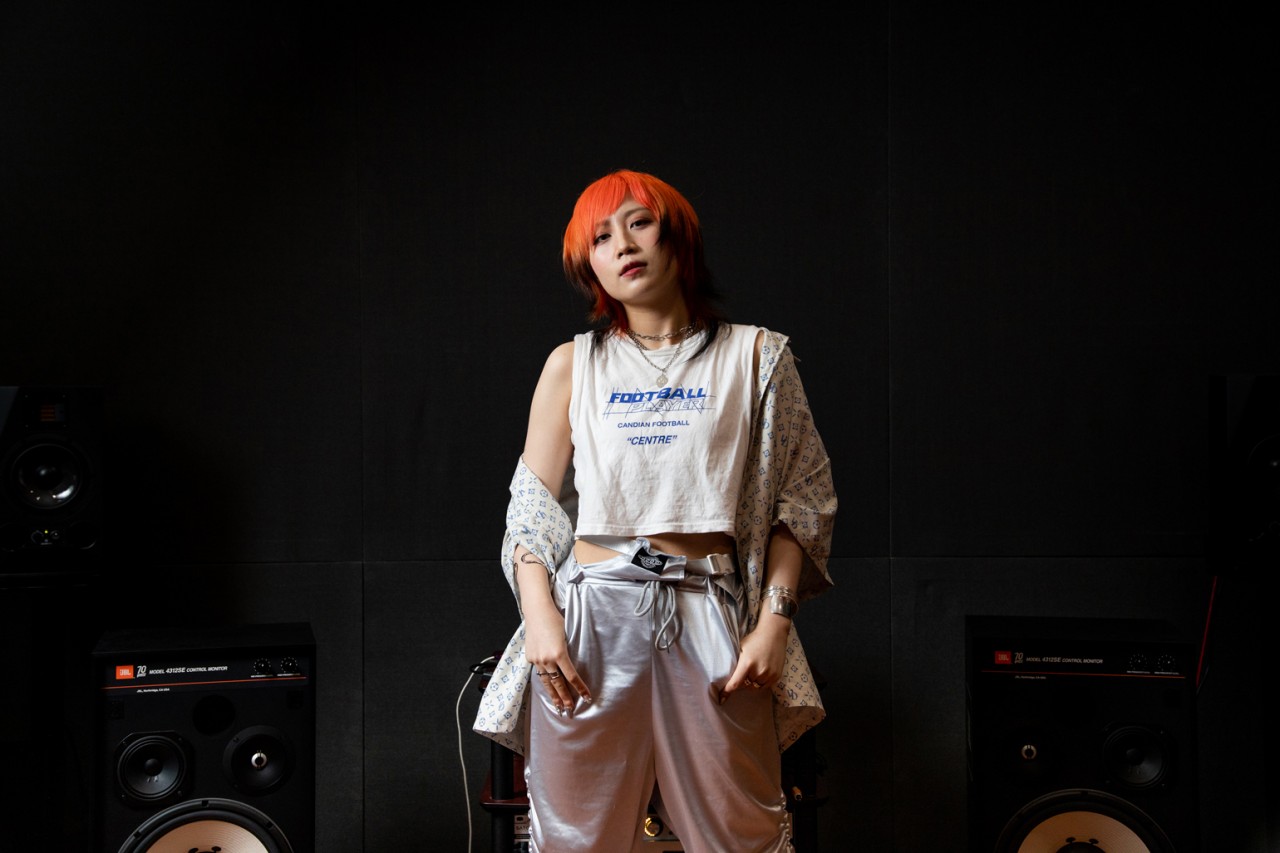
In August 2020 she released her own exclusive sample pack for volca sample 2 as well as an exclusive demo track, and in September she released her latest album "PURE FIRE". Let’s dive into TORIENA’s world.
TORIENA's volca sample demo track
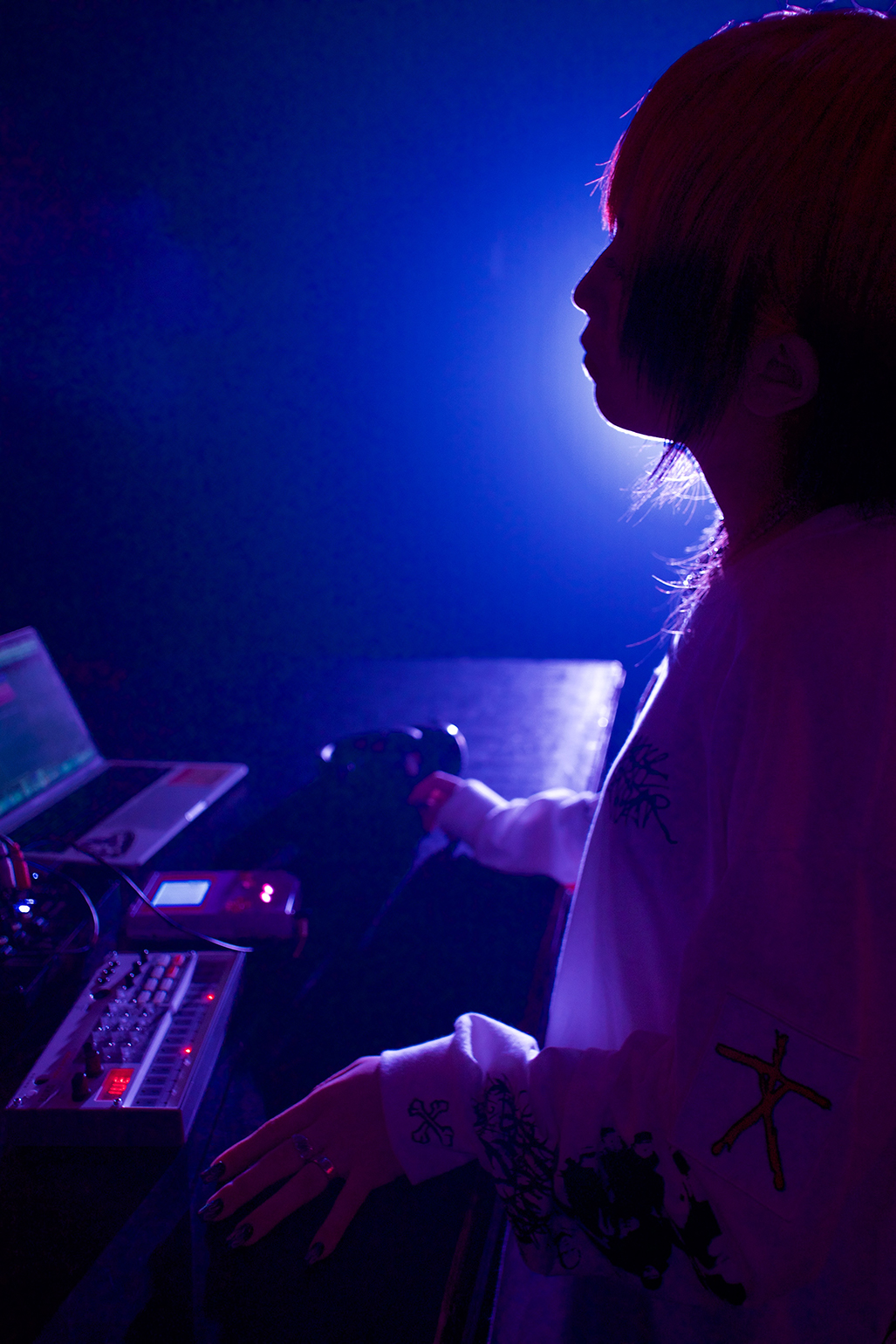
Please tell us about your musical roots
TORIENA: My father was a reggae fan and we had plenty of records and a huge speaker system at home, so I used to play records at night. Because of that, I think I was subconsciously familiar with this music from an early age. I think my personal interest in music started when I fell in love with Hilary Duff, who appeared in a Disney teen drama, and bought her CD. It was the first time in my life that I bought my own CD. From there, I became interested in the sounds of Western music and started watching MTV, which led me to Daft Punk, Kraftwerk, and Bjork. That's how I became interested in electronic music. In terms of Japanese music, I also used to listen to Polysics. I also listened to P-MODEL and PLASTICS. Nonetheless I was also interested in bands, like emo music, but also progressive rock such as Dream Theater or YES. Of course, I also liked punk rock like Green Day, but when I thought about what kind of music I really liked, the sound of electronic music was the one I felt most comfortable with.
Were you involved in any musical activities as part of your club activities or extra-curricular lessons?
TORIENA: I played in a brass band in high school. I really wanted to play the saxophone, but I ended up playing the tuba (laughs). Because there were not many members in the club, I was forced to play bass, tuba and double bass all at once. Because of this, I even bought an electric bass.
As for lessons, I have been doing ballet since I was 3 years old, and I also like classical music, so I used to listen to it a lot.
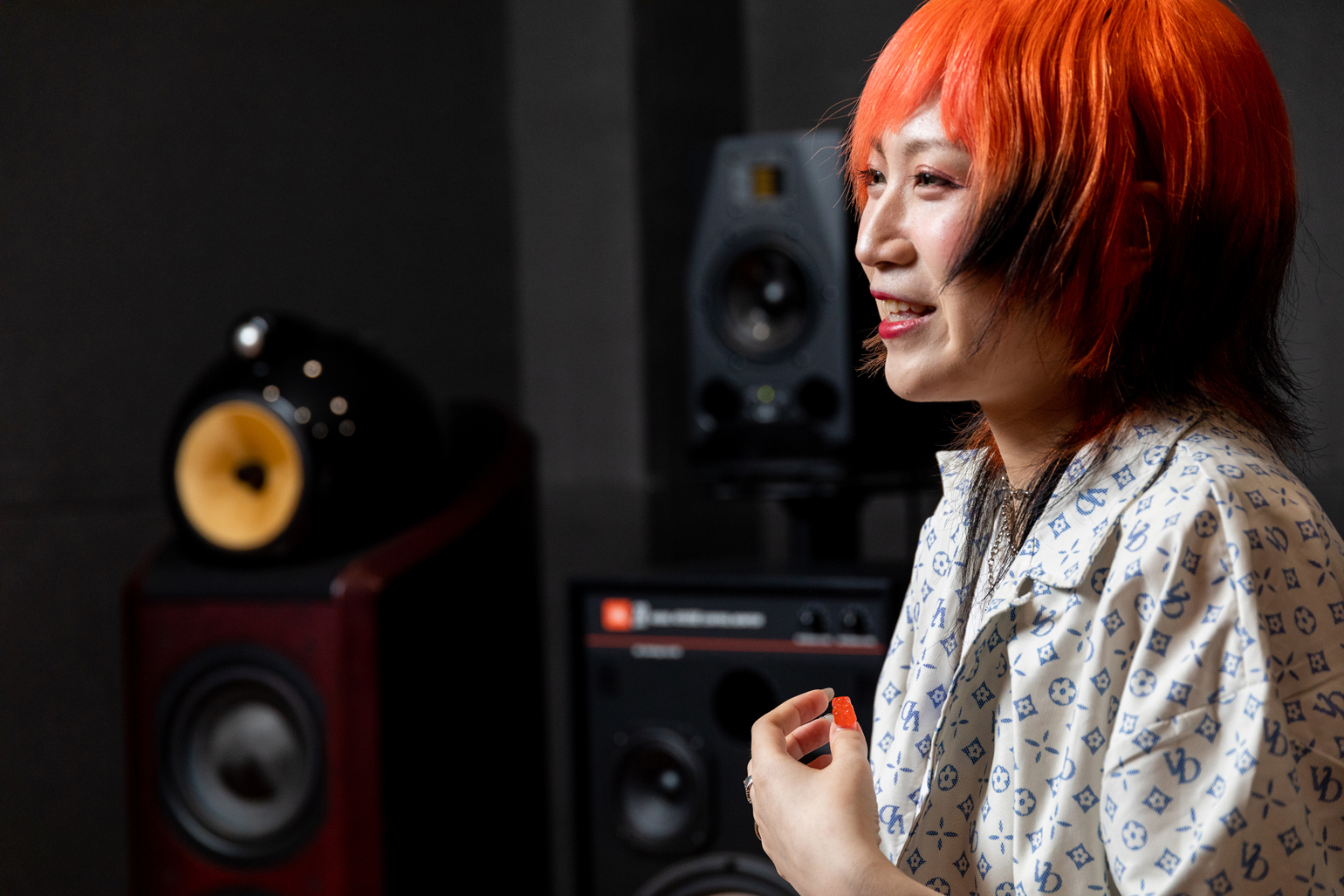
What made you start composing music?
TORIENA: I always wanted to try composing music! When I was in high school, I started composing music using a Nintendo DS game called “Band Brothers”. I also tried using the Domino sequencer software. When I was a senior in high school, a friend invited me to a live-painting event, where I heard electronic music such as trance and minimal for the first time in a loud club environment. I was really impressed, and that's when I decided that I wanted to do electronic music. It wasn't until my first year of college that I actually decided to go ahead and do it. So I got a part-time job and bought a DAW and monitor speakers. At the time, I didn't have any major goals or objectives in mind, but I just wanted to try making hard-minimal music. I was making hard-minimal music because I just wanted to try new things. I never thought, "Okay, I'm going to be an artist!” I didn't think anything like that at the time (laughs). I had some kind of yearning for the whole scene, but I thought to myself that there was no way I could become an artist. I was just a music lover.
Did you learn music production and theory on your own?
TORIENA: Yes, when I started to learn music production, it was completely for fun. The DAW software was difficult to learn, and I didn't really know how to make sounds or connect things together. At the time the bedroom producer scene wasn’t that big so there were very little resources available on the internet. Compared to that, now it’s super convenient all the info is out there! (laughs).
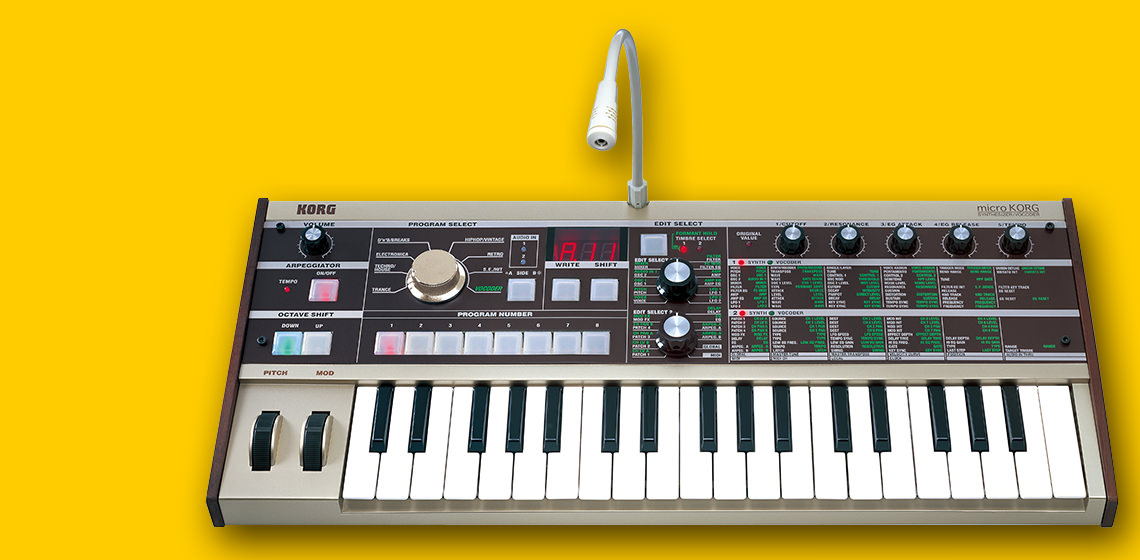
Learn more about microKORG
here
How did you come across hardware synthesizers?
TORIENA: My father used to have a synthesizer, and I've been playing with it since before I can remember. That was the first synthesizer in my life. When I decided to make music, I knew I needed a synthesizer, so I bought a microKORG, which was very popular even back then. I was fascinated by the fact that it could produce sounds other than the so-called keyboard sounds such as piano and organ, and I was also fascinated by the vocoder. It was very easy to understand that I could select the music genre I wanted to make using the big knob on the microKORG’s front panel. I was really excited because I was interested in all the genres listed! Around the same time, I also started to incorporate the sounds of the Game Boy into my compositions. I think that composing with hardware synths is very similar to drawing with just a pencil. When you draw with software, the tools are limitless, but with hardware, you are limited to, for example, "please draw with this set of colored pencils.” These restrictions make the work more minimalist and refined, and create gaps. The gaps can be filled in by the listener's imagination, so they can make the song their own. The “roughness” of the sound coming from software and hardware is completely different. Especially when you listen to it out there in the club for example, hardware sounds so much better!
What inspires you when you compose?
TORIENA: I mostly make tracks when something happens in my personal life and my emotions are heightened, or when I feel joy, anger or sadness. It's not that a song comes to me, it's more like I go for it. It's like I'm composing without thinking. Of course, I need to think about it when I am asked to make a specific track as work, but I don't really think about it when I write my own music. If I think about it, it often doesn't go well, so I just sit in my chair without thinking about it, make some sounds, and get the track done. So, as I am making the track, the process becomes more and more fun… I think there is quite a bit of "unconscious embodiment" going on for me. There are things about myself and my emotions that I am not even aware of, and I feel like they take shape when I make music. Before I used to write the melody first on the piano roll, but lately I tend to just make a track, and without a melody, grab a microphone and improvise the melody and lyrics at the same time. Also, dancing is important to me (laughs). After I've produced a song to some extent, I sit up and listen to the song while wandering around the room. I change my perspective and add things that are missing from the song.
- "I think there is quite a bit of "unconscious embodiment" going on for me. There are things about myself and my emotions that I am not even aware of, and I feel like they take shape when I make music."
How did you start making chiptune music?
TORIENA: My university was in Kyoto, and there is a place called "cafe la siesta” where people who made chiptune music would gather. A senior member of my university's music club introduced me to "cafe la siesta" and gave me a Game Boy composition software.
The software was difficult, so I put it on hold for a while, but suddenly I was invited to participate in a concert and was forced to produce a song for it, so I had to get to it and make a track.
I managed to get it done in time for the concert, and that's when I first learned how fun it is to perform live. I think my career itself started in 2012.
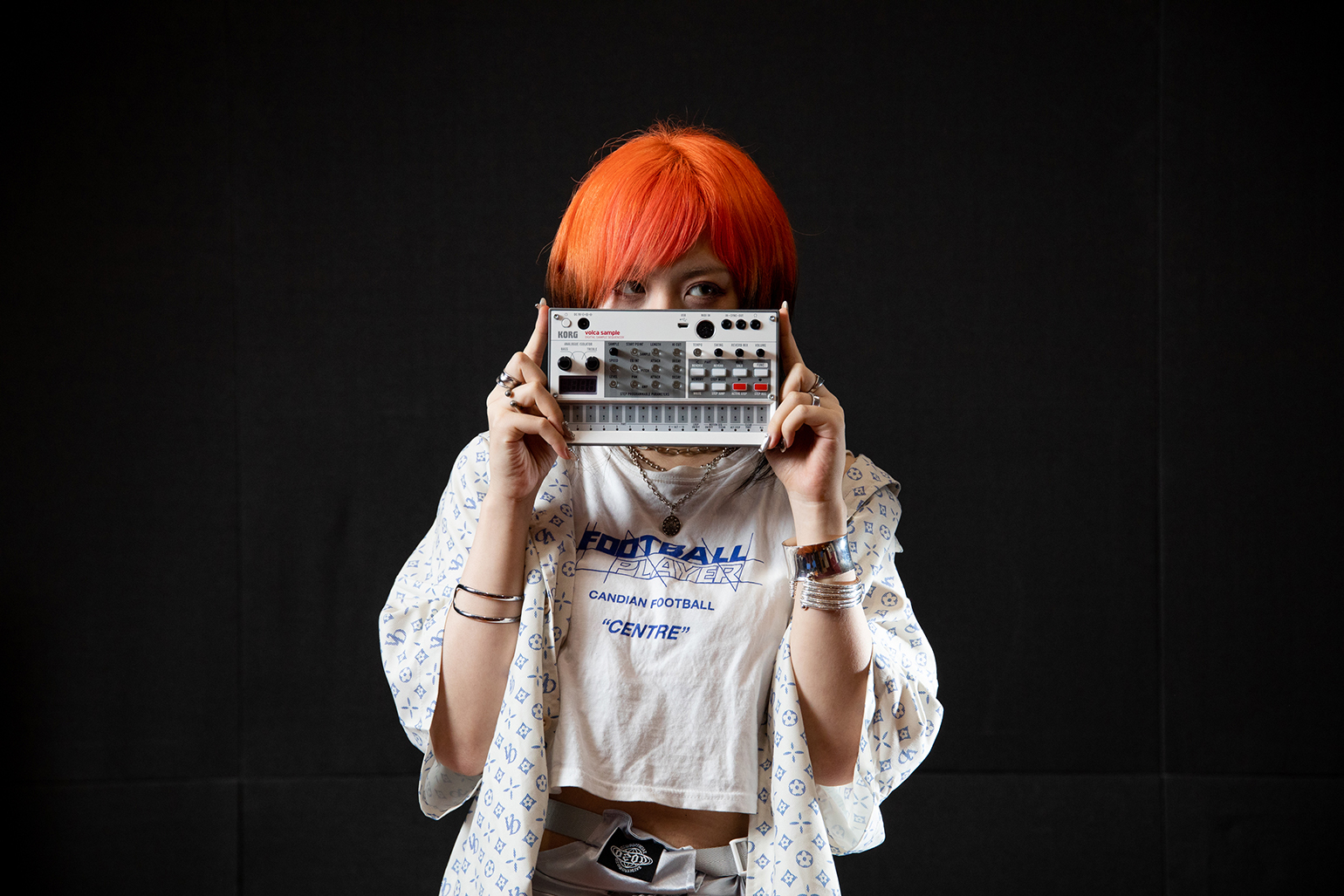
More details on the new volca sample here
How do you like the new volca sample?
TORIENA: It's a combination of hardware and software, because you can transfer samples via USB, so you can use any sound you want. I think it's especially suitable for people who want to actually “touch” the sounds. I like the feeling of being able to put a sound source into volca sample and being able to further edit it directly by twisting the knobs. I also like the fact that I can quickly change any sample on the fly without having to change the sequence I am using. It's also compact, so it's easy to carry around. I think it's very suitable to take it on the road and write some tracks casually without thinking too much
Please tell us about the sample pack that you created for volca sample
TORIENA: I added some iconic chiptune and videogame sounds, vocals, and other sounds I found inspiring. For the demo song, I actually used a lot of the preset samples from volca sample directly because I liked them so much!
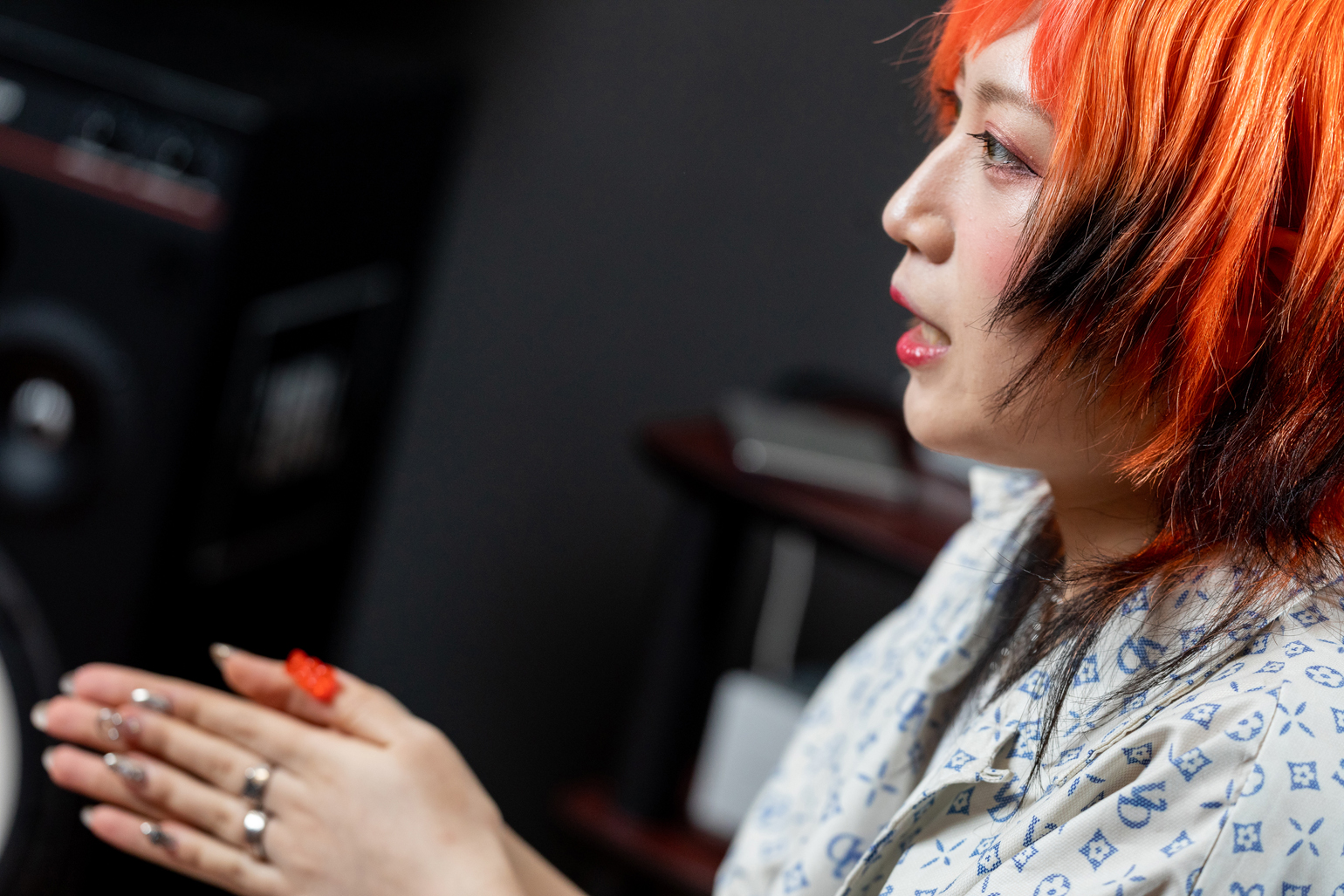
Do you have a specific routine when composing?
TORIENA: It varies from song to song, but mostly I will start fiddling with synth sounds. Next, I decide the BPM roughly. I tend to decide the main drum groove early on. I start with the kick, snare, clap, hi-hat, etc., and then add either the bass or the melody. I also like to double the BPM these days. For example, 240 BPM may sound fast, but it's simply double the speed of 120. I also like to add a half tempo in the middle of the song to give it a little more depth.
So you decide the chord progression later on I guess?
TORIENA: For songs where chord progressions are important, I will first lay down the basic structure of the sound in terms of chords, melody and bass line and get started from there, but I don't often use that method. I tend to start with the rhythm section of drums and bass, and try not to use complicated chord progressions. I try not to use complicated chord progressions, because if you make it complicated, the song will sound cluttered and vague. I believe that using simple chord progressions can give the song a sense of unity, especially in my genre of music.
How do you go about mixing?
TORIENA: For me, mixing is a simultaneous process with composing. I consider mixing and mastering to be a part of sound creation. If there is a clear difference in the levels at the final stage, I will make adjustments, but I don't re-mix so drastically in general. However, if I'm working on an album and I want to include a song I wrote a long time ago, I will re-mix it if I think it's not good enough.
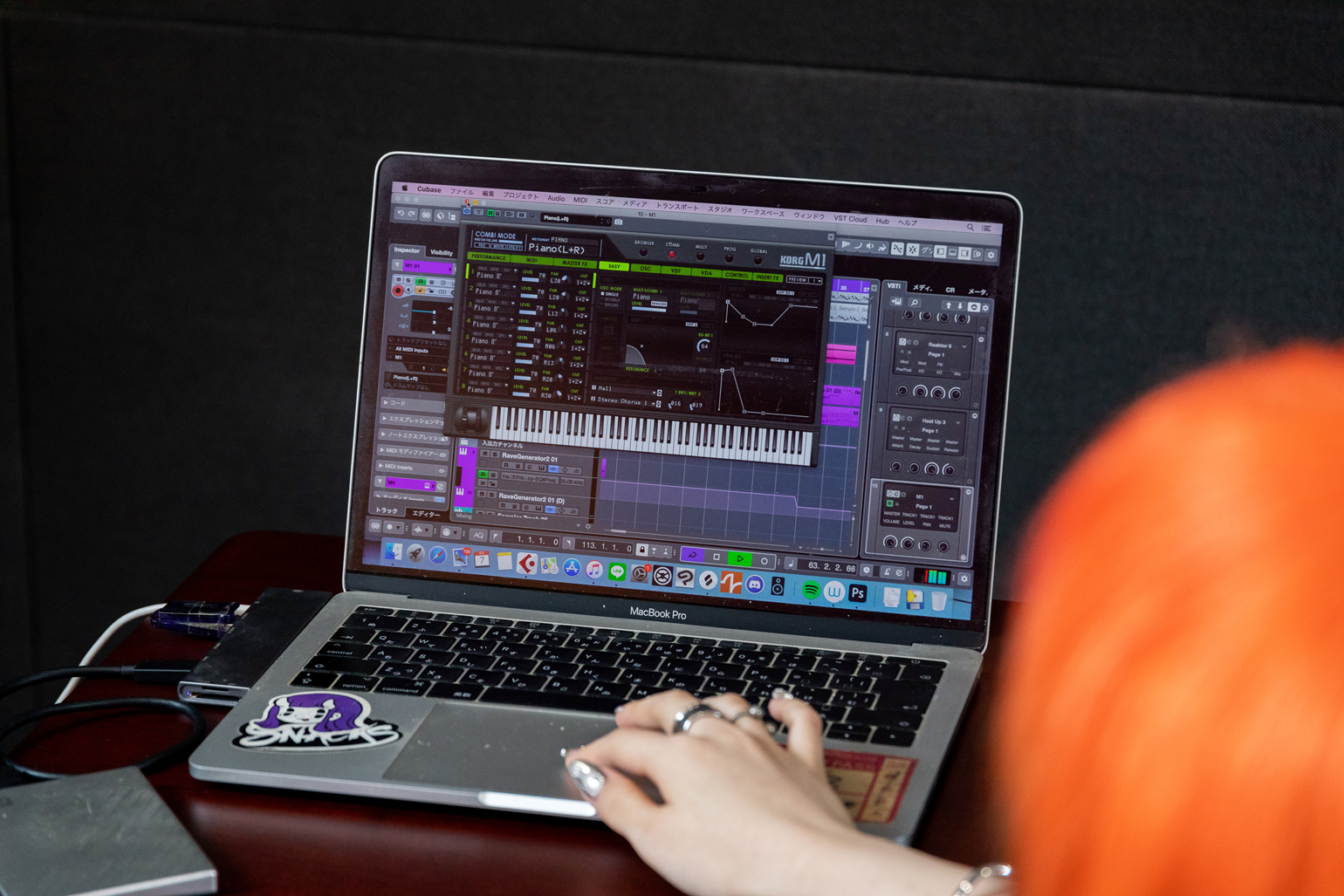
More details about the M1 for Mac/Win that was used in TORIENA's latest album "PURE FIRE"
Any music production tips you can share with us?
TORIENA: I like to use pitch bend extensively. It's a pain in the neck to write automation, but if you do it right, it can dramatically improve the song. I also use sample reverse a lot. For example, if you put a reverse clap right before a clap, it will sound so much cooler! (laughs) When the buildup is over and you're ready to go for the drop, I like to put a reverse kick, and it gives the song a sense of progression and speed. I often used the sample reverse function in the volca sample demo! Another tip would be, when the vocals don't cut through the mix I use a saturator plug-in. If I overdo it, it becomes too loud, but used well it will distort it just enough and make it sound so much better. I also like to use enhancer plugins lately. For me mixing vocals is the most difficult part of the whole song-writing process. I also have a limiter and compressor plugin on all channels at all times, just in case.
TORIENA's "Break Me Down" from "PURE FIRE"
What kind of music have you been working on recently?
TORIENA: The album "PURE FIRE" was released last year (2020), and I was very particular about it, I even made the artwork for the jacket myself. In the past, I've been told that if I don't sing, or if the BPM is too fast, people won't listen, etc., but this time I took off all my mental limiters and created songs that I wanted to do without caring about anything else. Only two of the ten songs have vocals, and they are mostly instrumentals. No regrets! It’s not like I want to beg people to listen to it, I've just done what I wanted to do, that’s all.
Are there any songs on the album "PURE FIRE" that you particularly like?
TORIENA: Definitely that would be “Break Me Down”. I've struggled with depression in my life, but I overcame it and this song represents where I am now.
- "...your physical condition is very important. You have to be in perfect physical condition to make the best possible music!"
What would you like to say to people who want to start producing music?
TORIENA: “Feelings are important!” I guess (laughs). You can't make music if you are not in the right state of mind. Of course, there is technique and learning, but the basics are more important. It’s as simple as; don't force yourself to make music if you are not feeling well. You can only make the best possible music when you are in top condition: eat three meals a day, do what you like, sleep properly… your physical condition is very important. You have to be in perfect physical condition to make the best possible music!
TORIENA's official web
http://english.toriena.net/
Official Social Media
https://soundcloud.com/toriena
https://twitter.com/toriena
https://www.instagram.com/toriena/
https://www.facebook.com/toriena321
https://www.youtube.com/channel/UCuGy6TybzoanRLT5vJdrNKQ
https://www.youtube.com/channel/UCRW4PD99G9JoiqwO74IAQ0A
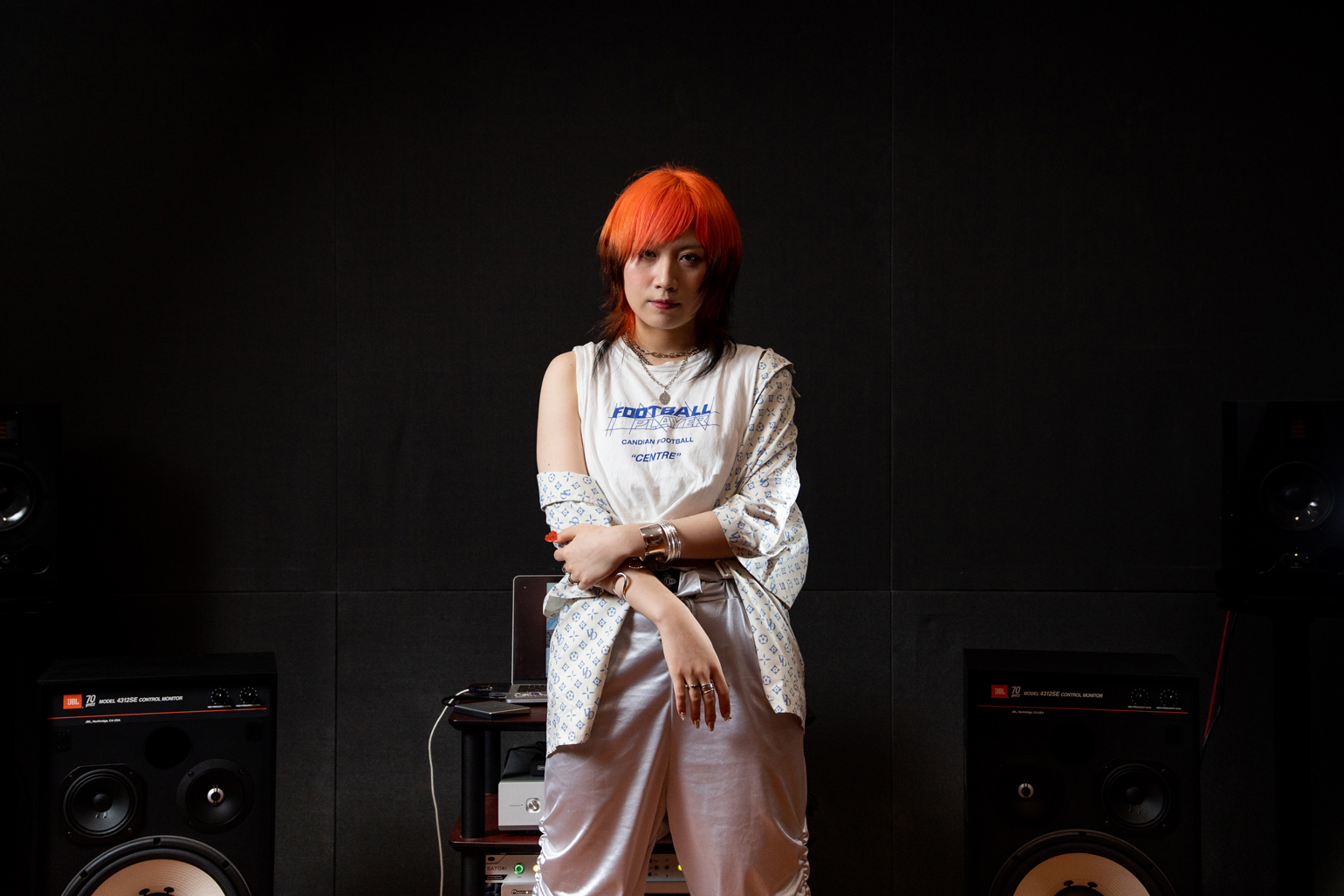
Product Information
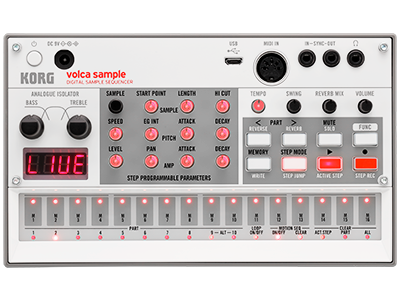
volca sample2
DIGITAL SAMPLE SEQUENCER
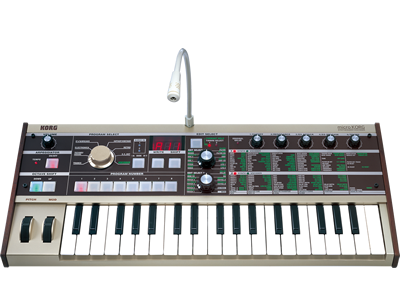
microKORG (2002)
SYNTHESIZER/VOCODER
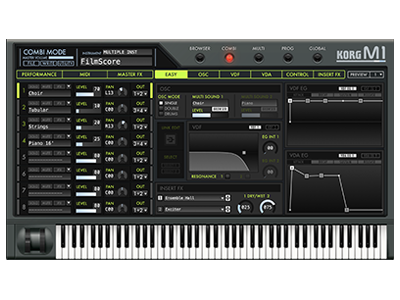
M1 V2 for Mac/Win
MUSIC WORKSTATION


